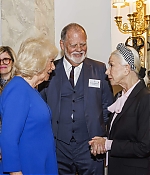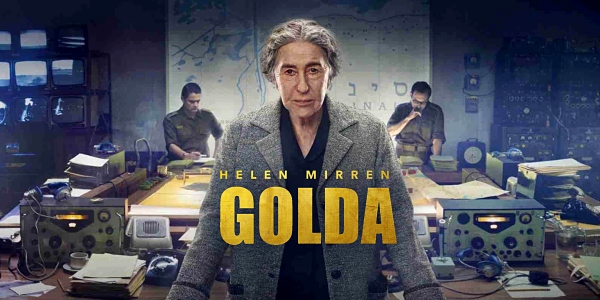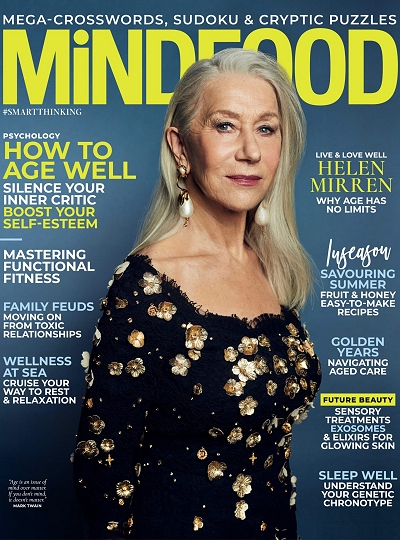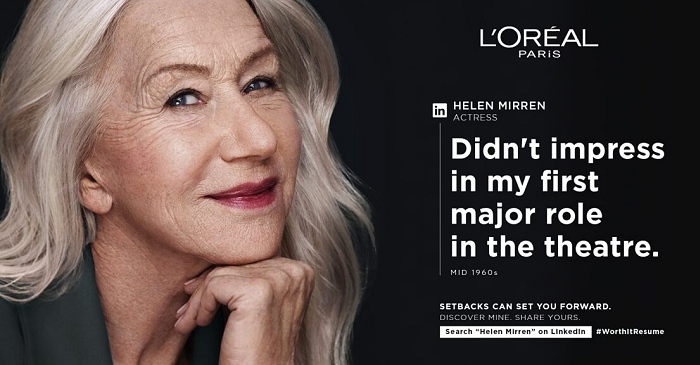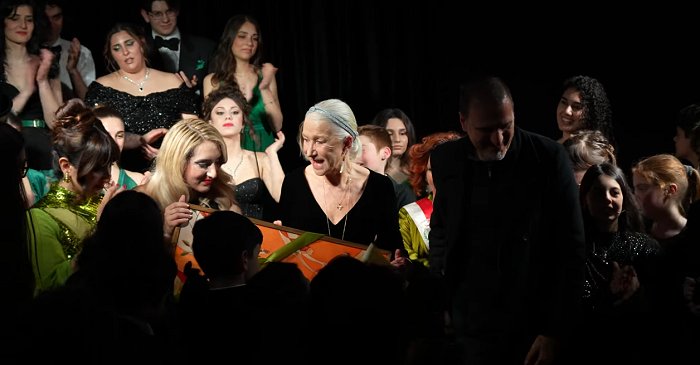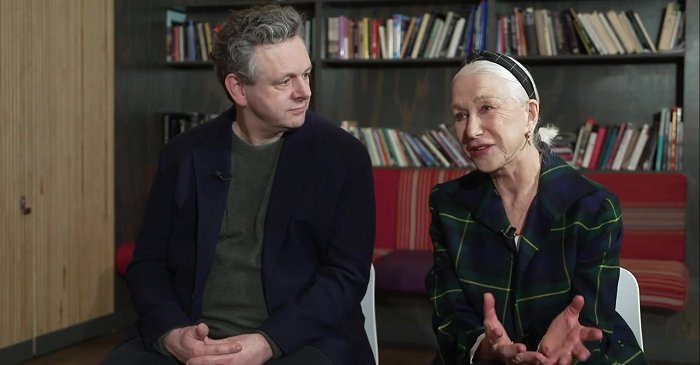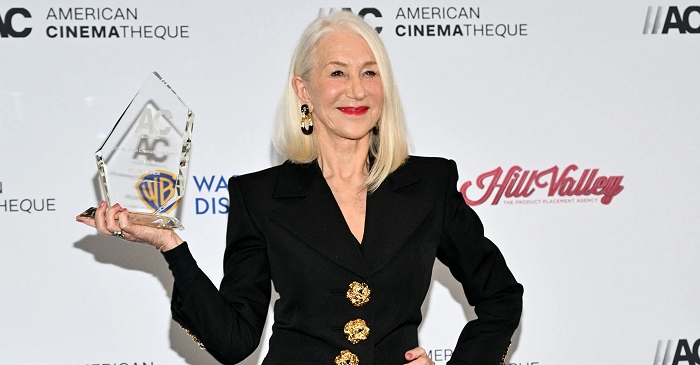
|
Welcome to The Helen Mirren Archives, your premiere web resource on the British actress. Best known for her performances with the Royal Shakespeare Company, "Prime
Suspect" and her Oscar-winning role in "The Queen", Helen Mirren is one of the world's most eminent actors today. This unofficial fansite provides you with all latest
news, photos and videos on her past and present projects. Enjoy your stay.
|
Celebrating
10 years
on the web
|
A veteran of the stage and screen defies stereotypes of age and gender
Around the world, she is best-known as police detective superintendent Jane Tennison of the hugely successful British TV series Prime Suspect. Scrappy, irritable, acerbic and impassioned—a workaholic woman fighting for respect in a male domain—Tennison is one of the most brilliantly nuanced heroines ever created for television. And with that role, British actor Helen Mirren debunked a whole set of axioms: that television has to be dumber than film, that cops in dramas have to actually bring down their suspects with brute force, and that smart, politically savvy middle-aged women cannot be sexy.
Curled up on a sofa for a hotel interview, Mirren projects a self-possessed vitality. She wears black leggings and a scarlet sweater. There is a coil of silver around her neck, a silver band around her wrist, but no rings. What is most striking about her is the complicated gaze—intelligent, imperious, yet undercut with seductive intrigue. It is not hard to imagine Mirren, who is now 50, stunning critics at London’s Old Vic theatre at 18 with her spectacular stage debut – as Cleopatra.
But in this interview, she is discussing a far less glamorous role. In the new film Some Mother’s Son, she plays Kathleen, a widowed Belfast schoolteacher who faces an agonizing dilemma after her imprisoned son joins an Irish Republican Army hunger strike. Until now, Mirren has tried to avoid mother roles. The actor, who lives with American director Taylor Hackford in Los Angeles, has no children. She says that, while she loves babies, she has never wanted to be a mother, and “I’ve always not wanted to play mothers. If you’re a woman and you’re over 40, the only way they can see you is you’ve got to be a mother.”
What attracted Mirren to Some Mother’s Son was the chance to play a woman invaded by politics. The latest in a string of movies based on true stories of political strife in Ireland, it is a much smaller, grittier film than the recent epic Michael Collins. And although it was scripted by the same Oscarnominated team who wrote 1993’s In the Name of the Father, Terry George and Jim Sheridan, it has none of its flamboyance. Grim but powerful, Some Mother’s Son is a straightforward drama about the unstraightforward choices faced by families of combatants in civil war.
It is not the first time that Mirren has played a woman caught in the crossfire of Irish politics. With Cal (1984), she won the best actress prize at Cannes for portraying the widow of a Protestant police man murdered by the IRA who gets involved with a Roman Catholic without realizing he was implicated in her husband’s death. Making Some Mother’s Son, however, was tougher, says Mirren. “It was most difficult on a philosophical level. It’s about huge questions of pacifism versus warmongering. We shot in Dublin, and each of us had a different agenda. It was intensely felt and intensely talked about, this film—more than any film I’ve done.”
That is a remarkable statement considering some of the films she has done. They in-
clude Bob Guccione’s crudely pornographic Caligula (1980), a bloated epic in which she played the wife of the Roman emperor, and Peter Greenaway’s artfully pornographic The Cook, the Thief, His Wife and Her Lover (1989), in which she played the wife of a brutal gangster. Against all odds, she emerged from the quagmire of both films with her dignity intact, and with critics singling her out for commendation.
Mirren seems to have fulfilled her childhood ambition, which, as she recalls, was to be “a great actress” rather than a star. Born in London in 1946, she is the daughter of a British mother and a Russian émigré father, whose work ranged from driving a cab to playing viola in the London Philharmonic Orchestra. Mirren studied theatre, which led to a stellar stage career with the Royal Shakespeare Company. She flirted with movie roles in the early 1970s, but turned her back on Hollywood to tour with director Peter Brook’s experimental theatre troupe.
Shifting her focus to film in the 1980s, Mirren won international notice with Caligula, which set the tone for a career of wildly eclectic roles. They include a faded Russian ballerina in White Nights (1985), a mysterious sexual predator in The Comfort of Strangers (1991) and a powdered English queen in The Madness of King George (1994). Unlike her film roles, however, her most famous character, Prime Suspect’s Tennison, is stubbornly ordinary. What makes her compelling, says Mirren, is that “she’s a person. She’s not a heroic feminist. Rarely do you see women on the screen simply as people—working, struggling, f-g up, going on, ambitious, flawed, whatever.”
But after six instalments, Mirren has no plans to make another Prime Suspect. And she will try to avoid the roles that Hollywood likes to throw character actors of her age—“horrible, nasty, embittered women.” Her next film is Sidney Lumet’s Critical Care, a satirical look at the American healthcare system in which she plays a nurse. Meanwhile, she wants to return to the stage. “My biological clock that is ticking is a theatrical clock,” she says. “It’s not really biological. It’s just a clock that’s saying, ‘You’ve got to go back in a major way to the theatre and build a body of work.’ ”
Journalists rarely leave an interview without asking Mirren about her tattoo—a pair of small Vs between her thumb and forefinger. It is an Indian symbol called a lakesh, signifying equality. “I got it long before it was fashionable to get tattoos,” she says, “long before. Someone told me it looks like the hills and the valley.” Mirren smiles. “It’s my career. Hills and valleys.”

